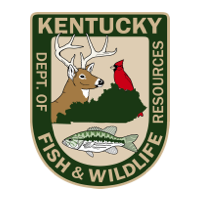National study finds kindergarten entry scores are the single strongest predictor of academic achievement
Published 12:29 pm Tuesday, April 9, 2019
The Children’s Reading Foundation national office has released a national school readiness study with findings that reveal children’s kindergarten starting points predict their academic achievement in fifth grade and beyond. The findings have far-reaching implications as communities struggle to close the achievement gap to ensure all students are prepared for success in school and in life.
The “Readiness for Entering Kindergarten: The Impact on Future Academic Achievement” study was headed by Lynn Fielding, co-author of the books “The 90% Reading Goal” and “Annual Growth, Catch-Up Growth” and co-founder of The Children’s Reading Foundation.
Study co-authors, Lynn Fielding, Jay Maidment, and Christian Anderson, analyzed longitudinal data for 380,000 U.S. students (anonymous) using one of the largest kindergarten to fifth grade student test datasets in existence from the Northwest Evaluation Association (NWEA). Some of the pivotal study findings include:
Children’s language and literacy skills on day one of kindergarten range four to five years – some have the skills of a 3-year-old, others like a 7- or 8-year-old.
The majority (76 percent) of children who start kindergarten ahead are still ahead in fifth grade. Most (71 percent) who start behind are still behind in fifth grade. Two-thirds of students entering fifth grade are within 26 percentile points from the percentile they entered kindergarten
Of children who start kindergarten in the lowest 20 percent and subsequently improve, half (50 percent) of them will do so during kindergarten.
The most substantial change (80 percent) of the net gain or loss in students’ skills from kindergarten to eighth grade occurs during kindergarten.
Most children (88 percent) who enter kindergarten reading in the highest 20 percent also score in the highest (64 percent) or the second highest (24 percent) 20 percent in math.
The majority of children (85 percent) who read in the lowest 20 percent also score in the lowest (64 percent) or the second lowest (25 percent) 20 percent in math.
Science scores in fifth grade can be predicted almost as accurately as reading scores using entering kindergarten reading and math scores.
The study shows what occurs without specific diagnostic intervention. The findings suggest that effective teachers and discretionary resources will have more impact on students at kindergarten, and to a lesser extent, in first grade, than in later grades.
Additionally, the study findings indicate that if families, schools and communities focus on a child’s early learning in the years before kindergarten, the achievement gap will narrow significantly.
The full study is available at https://www.readingfoundation.org/research.
Bell County children and families have been served by The Children’s Reading Foundation of Appalachia-KY since 2011 when the local chapter became active through funding provided by The Elgin’s Children Foundation. Afterwards, CRFA-KY was funded to include inventory for READY! for Kindergarten and Summer Read UP by becoming a sub-recipient of an Innovative Approaches to Literacy Grant written by the national Children’s Reading Foundation in Kennewick, Washington during 2012 to 2016.
Currently, CRFA-KY has grown to become the anchor organization in creating First Things First – Center for Early Childhood Resources, located in the Middlesboro Mall. The location offers a physical site and infrastructure for a local volunteer base (Wear the Cape), training center (Live What You Learn) and Early – Community Action Teams for Children (E-CATCH).
These groups work side by side The Children’s Reading Foundation of Appalachia – KY, to organize awareness events, provide services and inventory, as well as, unite local families, schools, and community members to make use of current research concerning the importance of early childhood education and the economic value of investing in children from birth to five and their families.
The national nonprofit was founded in 1996 in Kennewick, Washington. The Children’s Reading Foundation’s vision is that every child learns to read at grade level by the end of third grade, thereby reaching his or her full potential in school and life. The foundation helps establish local chapters in communities across the country and delivers national programs focused on literacy and school readiness skills for children birth to age 8. Learn more at ReadingFoundation.org.






